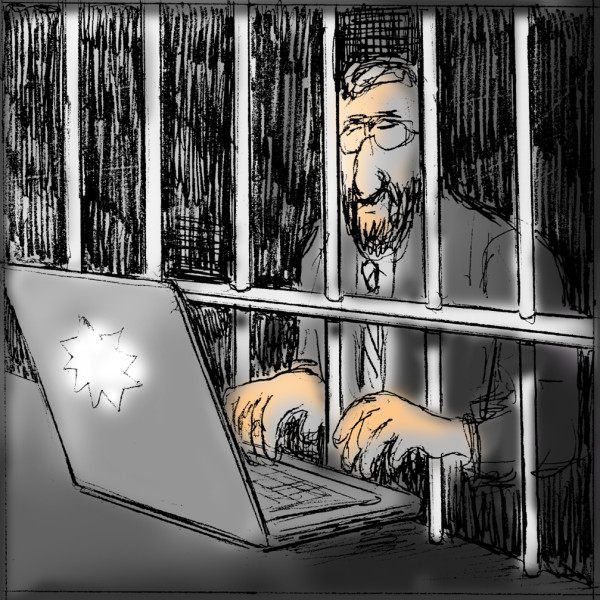
With a quarter-century of experience as a university professor behind me, I thought I could no longer be surprised by my students. I have been inspired by students in India who walked three miles in the midday sun to attend a class, moved to tears by Chinese students who demonstrated to voice their demands for greater freedom and filled with hope by American students who have wanted nothing more than to devote their lives to working for climate justice. But as for courage, I have not encountered any that surpasses what I saw in the Iranian students to whom I taught writing this past year.
My Iranian students were enrolled in a course I offered through the Baha’i Institute for Higher Education, or the BIHE, an unofficial online university staffed by a global faculty who volunteer their time to give Baha’i students in Iran the chance to pursue the post-secondary education denied them by their government.
Incredible as it may seem, Baha’is are barred from attending the nation’s universities simply because of their membership in the Baha’i faith, a religious community that professes a belief in the teachings of Baha’u’llah, teachings such as the equality of women, the elimination of the extremes of wealth and poverty and, yes, universal access to education.
The reason? Baha’is believe in a prophet who appeared after Muhammad, a belief which, according to the conservative religious authorities in Iran, is heresy. For Baha’is, Baha’u’llah has brought the latest in a series of revelations given by various prophets over the ages to teach people how to live.
Baha’is in Iran not only are forbidden to attend the country’s universities, they also are barred from serving in a variety of professional capacities, and in some towns and cities they are even assigned their own water fountains because they are considered to be unclean.
In the writing course, I assigned several key 20th-century memoirs, among them Anne Frank’s “Diary of a Young Girl.” The students were to read the memoir, then write a brief essay in response. Most offered what I might expect from undergraduate students: an academic paper that fulfilled requirements. But the response of a young woman named Sahba was surprising to me because it was so personal. In her brief essay, she linked Frank’s experience with her own.
She began her essay with a striking comparison: “A prison can be as small as six cramped rooms in the back of a warehouse in Amsterdam or as big as a country.” Her conclusion: “History repeats itself. Anne Frank and I might be intimates. Both of us were destined to be imprisoned in jails made from religious persecution — Anne as a Jew in Holland and I as a Baha’i in Iran.”
As a teacher, I was moved by the courage of students such as Sahba. Now I teach every spring in the BIHE, and I am not alone in my commitment to do what I can to address the plight of these Iranian students. An affiliated global faculty from universities all over the world continues to volunteer.
Now Canadian filmmaker Maziar Bahari has brought the experience of studying in the BIHE into focus in an award-winning film, “To Light a Candle,” which will be shown at 6 p.m. Monday, April 11, in the Coe Room at the University of Maine.
Anyone who wishes to learn more about the plight of the Baha’is in Iran will be inspired, as I have been, by their courage.
Dr. Sandra Lynn Hutchison lives in Orono and is on faculty at the University of New Brunswick. She is the author of two books, “Chinese Brushstrokes” (1996) and “The Art of Nesting” (2008), and the editor of the literary journal e*lix*ir at elixir-journal.org.
Leave a Reply